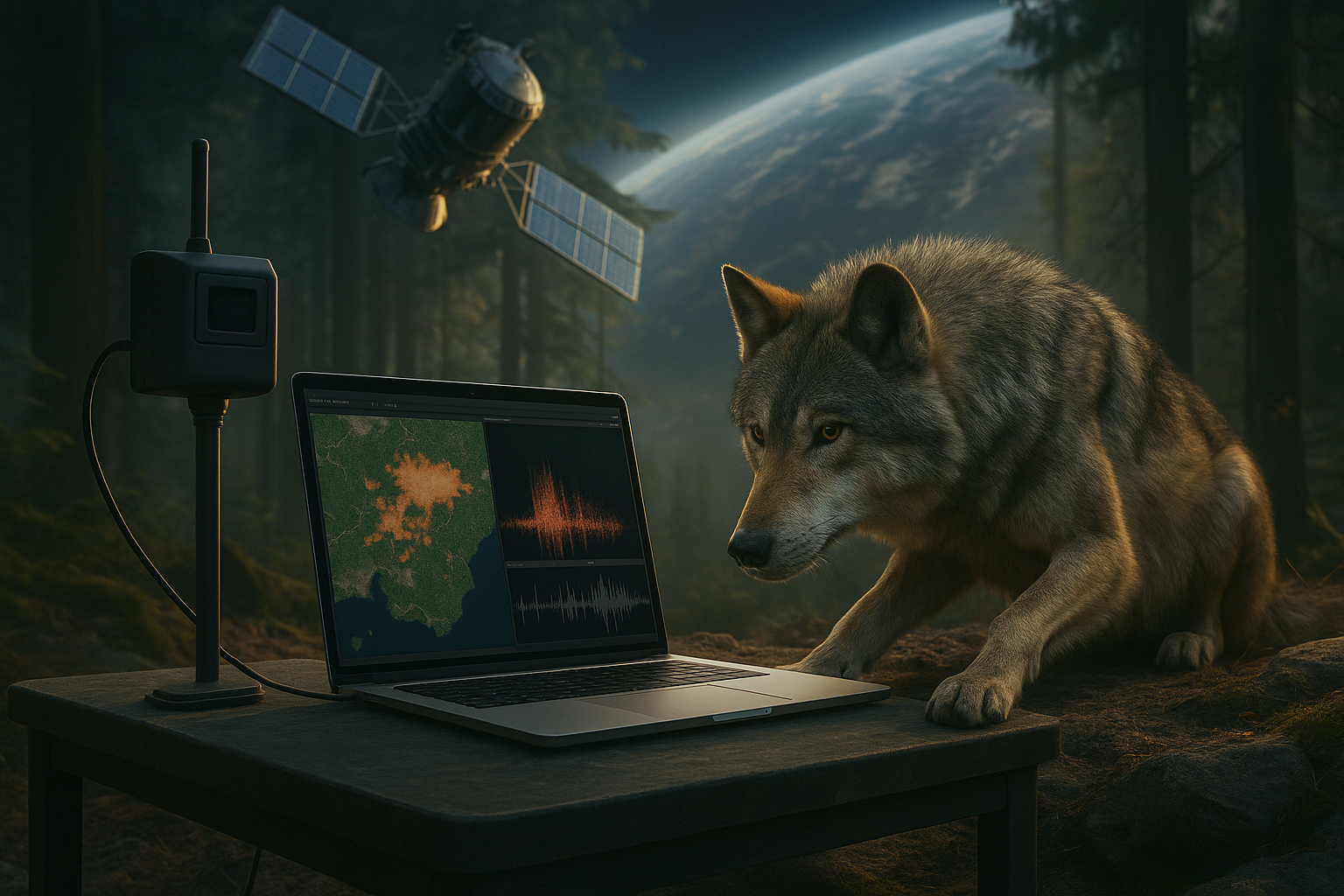Master’s thesis projects in AI for Earth observation, ecology, and bioacoustics

The RIDR (RISE Deep Learning Research) group is offering several exciting Master’s thesis opportunities for students passionate about applying artificial intelligence to real-world ecological challenges. These projects offer a chance to work with unique datasets, collaborate with interdisciplinary teams, and contribute to impactful research with the potential for publication.
Successful completion of a project will be rewarded with SEK 30,000 per student. We encourage teams of two students to apply for each project.
AI-based species distribution modeling of predators in scandinavia using remote sensing
This project aims to develop robust species distribution models for large predators like bears, lynx, and wolves in Scandinavia. By combining predator observation data from ROVBASE with high-resolution remote sensing imagery, you will use AI-based methods to understand how environmental factors influence their distribution. This work, in collaboration with Norwegian and Swedish authorities, will provide valuable insights for wildlife management and conservation.
- Location: Gothenburg
- Supervision: Olof Mogren, Aleksis Pirinen
Multi-modal machine listening for bioacoustic analysis and modelling
Centered around the unique AukLab-Audio dataset from the Stora Karlsö Auk Lab, this project focuses on developing machine listening models that leverage multi-modal data. You will explore how visual cues, weather data, and other sensor information can be used to train and contextualize acoustic models of common guillemot vocalizations. The Stora Karlsö Auk Lab is a unique cliff-edge observatory for common guillemots (Uria aalge) in the Baltic Sea. This research contributes to a deeper understanding of this seabird’s vocal behavior.
- Location: Gothenburg
- Supervision: Olof Mogren, John Martinsson
Data-centric AI for acoustic discovery: anomaly detection and active learning in bioacoustics
Also utilizing the rich AukLab-Audio dataset, this project takes a data-centric approach to uncover new acoustic patterns in guillemot vocalizations. You will develop anomaly detection algorithms to identify rare sound events and implement active learning strategies to guide the annotation process, optimizing human labeling efforts and expanding our knowledge of this species’ acoustic repertoire.
- Location: Gothenburg
- Supervision: John Martinsson, Olof Mogren
Machine learning and Earth observation data for monitoring nature restoration
Based in Lund, this project focuses on using machine learning and satellite data to monitor the restoration of Swedish pastures and semi-natural grasslands, in line with the EU’s new nature restoration law. You will develop and train machine learning models to process multi-year time series of satellite imagery and generate reliable signals about on-the-ground restoration efforts. The project involves key stakeholders such as Arla, the Swedish Board of Agriculture, and the Swedish Environmental Protection Agency.
- Location: Lund
- Supervision: Aleksis Pirinen, Delia Fano Yela, Georg Andersson
For more details on these opportunities, including application instructions and deadlines, please visit the links below:
- AI-based Species Distribution Modeling of Predators in Scandinavia using Remote Sensing
- Multi-Modal Machine Listening for Bioacoustic Analysis and Modelling
- Data-Centric AI for Acoustic Discovery: Anomaly Detection and Active Learning in Bioacoustics
- Machine Learning and Earth Observation Data for Monitoring Nature Restoration
All projects include supervisors from the RIDR group.
